The BCCI president, in the unfamiliar attire of shirt, trousers and coat, looked fit and in good form, both physically and with his words.
Namaste England
There was no official headcount taken, but it would be fair to say that Sharad Pawar’s press conference after the Old Trafford match had more scribes in attendance than Rahul Dravid’s or Paul Collingwood’s.
The BCCI president, in the unfamiliar attire of shirt, trousers and coat, looked fit and in good form, both physically and with his words. A big-made man, his girth, as one wag observed, was less than his namesake with a twist of the vowel, India’s off-spinner Ramesh Powar.
Expectedly, Pawar (we are back now to the administrator) was besieged with questions about the Indian Cricket League, and fielded these with greater aplomb and dexterity than that shown by Powar (we are now talking of the cricketer), or indeed, most of the Indian players..
The gist of Pawar’s (you know who) views on the crisis is that players are free to choose where they want to play, the BCCI is free to do as it feels fit with these players, since they cannot belong both here and there.
Since this view was neither new nor novel, the press conference became more of the same before it was drawn to an early close by tour manager and BCCI vice president, Rajiv Shukla.
Before he left the room, I asked the man who wears two important hats in Indian public life (he is also union agriculture minister) about the problems faced by the UPA government, which has been under threat from the Left for the past three weeks. “There is no crisis now, the government is safe,” replied Pawar with a broad smile.
At least here he seemed on more sure footing than while discussing cricket.
Not only in India
Two weeks in the country can give you a fairly comprehensive experience of English life, some of it, must be told, no different from back home.
For instance, Monday morning travellers on London’s underground faced delays of almost 40-60 minutes on some of the lines because of signal failures and one man being crushed under a train. It could have been the story of a typical morning in Mumbai’s suburban rail travel.
Last week, I was stranded on a motorway for almost three hours because of an accident: Didn’t move an inch. Happens too in Mumbai, Delhi, Bangalore - almost wherever India’s is on the fast track of urbanisation.
But there are also some aspects of English life in the same situations which are admirably different. Neither during the delays on the underground, nor on the motorway where the accident took place, was there any needless show of public dissent.
No shouting, no screaming, no rancour, not even blowing the horn in frustration or pique. Indeed, the only expression of road rage I saw on the motorway was people queuing up to relieve their bursting bladders, and that too with agonizing politeness.
Likewise, getting in and out of cricket stadia is designed to spectator convenience, not show off the power and arrogance of the administration.
Entry and exit points are plenty and easy to find, seats are comfortable, there are enough number of public toilets and food stations. Watching a match becomes an enjoyable experience rather than a grim battle for survival.
Then there are the excellent book and souvenir shops, which can make a kid’s day. (Incidentally, T-shirts of Indian stars are selling like hot cakes again at the Oval and Lord’s, so nothing succeeds like success).
Cricket’s been a fascinating facet of English life, but so also the reserve, patience and tolerance - all crucial in the making of a responsible civil society. And the fact that every payment deserves a receipt, ensuring that there is no hanky-panky. There is much to learn from them.
Where culinary expertise is concerned, the English (in my estimation) would rank rather low. The typical food is basic (pies, fried fish and chips, steaks) and bland, but there is an innate urge for experimentation which explains the huge popularity of Indian curries and a host of other cuisines.
Where bread and desserts are concerned, they fare much better, but beware of `Yorkshire pudding’: it may be a delicacy, but it is NOT a sweet dish. The sticky toffee pudding, highly recommended, is however exactly what its name suggests.
Now that the Indian team is back to playing sweet cricket, the time is ripe to tuck into this.
Returning the favour
Predictably, Sachin Tendulkar returned Shane Warne’s compliment in an interview published in the London Times on Monday morning. “If he hadn’t taken a single wicket throughout the day, I still felt I had to focus as much on the last ball as I had on the first few,” he said of Warne’s virtuosity.
Much interest is now centred on whether Tendulkar will write out his list of great cricketers too, but the Little Master appears reticent. When I asked him in Headingley if he had given this some thought, Tendulkar said, “Nahin yaar, main kahaan…” needless to say, it would be a blockbuster if he did.
Meanwhile, I hear consternation rises Down Under at Steve Waugh being given the short shrift by Warne, who ranked his former captain only 26th. Given that the leg-spinner was never enamoured by Waugh, I can accept that.
But Warne’s list niggles on one score. Adam Gilchrist at 20? In my estimation he would be in the top-10.
If Mr David Beckham wants to know, he’ll have to read my lips
![submenu-img]() Aamir Khan was unsure if censor board would clear Sarfarosh over mentions of Pakistan, ISI: 'If Advani ji can say...'
Aamir Khan was unsure if censor board would clear Sarfarosh over mentions of Pakistan, ISI: 'If Advani ji can say...'![submenu-img]() Gurucharan Singh missing case: Delhi Police questions TMKOC cast and crew, finds out actor's payments were...
Gurucharan Singh missing case: Delhi Police questions TMKOC cast and crew, finds out actor's payments were...![submenu-img]() 'You all are scaring me': Preity Zinta gets uncomfortable after paps follow her, video goes viral
'You all are scaring me': Preity Zinta gets uncomfortable after paps follow her, video goes viral![submenu-img]() Viral video: Influencer dances with gun in broad daylight on highway, UP Police reacts
Viral video: Influencer dances with gun in broad daylight on highway, UP Police reacts![submenu-img]() Family applauds and cheers as woman sends breakup text, viral video will make you laugh
Family applauds and cheers as woman sends breakup text, viral video will make you laugh![submenu-img]() DNA Verified: Is CAA an anti-Muslim law? Centre terms news report as 'misleading'
DNA Verified: Is CAA an anti-Muslim law? Centre terms news report as 'misleading'![submenu-img]() DNA Verified: Lok Sabha Elections 2024 to be held on April 19? Know truth behind viral message
DNA Verified: Lok Sabha Elections 2024 to be held on April 19? Know truth behind viral message![submenu-img]() DNA Verified: Modi govt giving students free laptops under 'One Student One Laptop' scheme? Know truth here
DNA Verified: Modi govt giving students free laptops under 'One Student One Laptop' scheme? Know truth here![submenu-img]() DNA Verified: Shah Rukh Khan denies reports of his role in release of India's naval officers from Qatar
DNA Verified: Shah Rukh Khan denies reports of his role in release of India's naval officers from Qatar![submenu-img]() DNA Verified: Is govt providing Rs 1.6 lakh benefit to girls under PM Ladli Laxmi Yojana? Know truth
DNA Verified: Is govt providing Rs 1.6 lakh benefit to girls under PM Ladli Laxmi Yojana? Know truth![submenu-img]() Mother's Day 2024: Bollywood supermoms who balance motherhood, acting, and run multi-crore businesses
Mother's Day 2024: Bollywood supermoms who balance motherhood, acting, and run multi-crore businesses![submenu-img]() Rocky Aur Rani's Golu aka Anjali Anand shocks fans with drastic weight loss without gym, says fitness secret is...
Rocky Aur Rani's Golu aka Anjali Anand shocks fans with drastic weight loss without gym, says fitness secret is...![submenu-img]() In pics: Ram Charan gets mobbed by fans during his visit to Pithapuram for ‘indirect campaign’ for uncle Pawan Kalyan
In pics: Ram Charan gets mobbed by fans during his visit to Pithapuram for ‘indirect campaign’ for uncle Pawan Kalyan![submenu-img]() Streaming This Week: Yodha, Aavesham, Murder In Mahim, Undekhi season 3, latest OTT releases to binge-watch
Streaming This Week: Yodha, Aavesham, Murder In Mahim, Undekhi season 3, latest OTT releases to binge-watch![submenu-img]() Aamir Khan, Naseeruddin Shah, Sonali Bendre celebrate 25 years of Sarfarosh, attend film's special screening
Aamir Khan, Naseeruddin Shah, Sonali Bendre celebrate 25 years of Sarfarosh, attend film's special screening![submenu-img]() Haryana Political Crisis: Will 3 independent MLAs support withdrawal impact the present Nayab Saini led-BJP government?
Haryana Political Crisis: Will 3 independent MLAs support withdrawal impact the present Nayab Saini led-BJP government?![submenu-img]() DNA Explainer: Why Harvey Weinstein's rape conviction was overturned, will beleaguered Hollywood mogul get out of jail?
DNA Explainer: Why Harvey Weinstein's rape conviction was overturned, will beleaguered Hollywood mogul get out of jail?![submenu-img]() What is inheritance tax?
What is inheritance tax?![submenu-img]() DNA Explainer: What is cloud seeding which is blamed for wreaking havoc in Dubai?
DNA Explainer: What is cloud seeding which is blamed for wreaking havoc in Dubai?![submenu-img]() DNA Explainer: What is Israel's Arrow-3 defence system used to intercept Iran's missile attack?
DNA Explainer: What is Israel's Arrow-3 defence system used to intercept Iran's missile attack?![submenu-img]() Aamir Khan was unsure if censor board would clear Sarfarosh over mentions of Pakistan, ISI: 'If Advani ji can say...'
Aamir Khan was unsure if censor board would clear Sarfarosh over mentions of Pakistan, ISI: 'If Advani ji can say...'![submenu-img]() Gurucharan Singh missing case: Delhi Police questions TMKOC cast and crew, finds out actor's payments were...
Gurucharan Singh missing case: Delhi Police questions TMKOC cast and crew, finds out actor's payments were...![submenu-img]() 'You all are scaring me': Preity Zinta gets uncomfortable after paps follow her, video goes viral
'You all are scaring me': Preity Zinta gets uncomfortable after paps follow her, video goes viral![submenu-img]() First Indian film to be insured was released 25 years ago, earned five times its budget, gave Bollywood three stars
First Indian film to be insured was released 25 years ago, earned five times its budget, gave Bollywood three stars![submenu-img]() Mother’s Day Special: Mom-to-be Richa Chadha talks on motherhood, fixing inequalities for moms in India | Exclusive
Mother’s Day Special: Mom-to-be Richa Chadha talks on motherhood, fixing inequalities for moms in India | Exclusive![submenu-img]() Kolkata Knight Riders become first team to qualify for IPL 2024 playoffs after thumping win over Mumbai Indians
Kolkata Knight Riders become first team to qualify for IPL 2024 playoffs after thumping win over Mumbai Indians![submenu-img]() IPL 2024: This player to lead Delhi Capitals in Rishabh Pant's absence against Royal Challengers Bengaluru
IPL 2024: This player to lead Delhi Capitals in Rishabh Pant's absence against Royal Challengers Bengaluru![submenu-img]() RCB vs DC IPL 2024: Predicted playing XI, live streaming details, weather and pitch report
RCB vs DC IPL 2024: Predicted playing XI, live streaming details, weather and pitch report![submenu-img]() CSK vs RR IPL 2024: Predicted playing XI, live streaming details, weather and pitch report
CSK vs RR IPL 2024: Predicted playing XI, live streaming details, weather and pitch report![submenu-img]() RCB vs DC IPL 2024 Dream11 prediction: Fantasy cricket tips for Royal Challengers Bengaluru vs Delhi Capitals
RCB vs DC IPL 2024 Dream11 prediction: Fantasy cricket tips for Royal Challengers Bengaluru vs Delhi Capitals![submenu-img]() Viral video: Influencer dances with gun in broad daylight on highway, UP Police reacts
Viral video: Influencer dances with gun in broad daylight on highway, UP Police reacts![submenu-img]() Family applauds and cheers as woman sends breakup text, viral video will make you laugh
Family applauds and cheers as woman sends breakup text, viral video will make you laugh![submenu-img]() Man grabs snake mid-lunge before it strikes his face, terrifying video goes viral
Man grabs snake mid-lunge before it strikes his face, terrifying video goes viral![submenu-img]() Viral video: Man wrestles giant python, internet is scared
Viral video: Man wrestles giant python, internet is scared![submenu-img]() Viral video: Delhi University girls' sizzling dance to Haryanvi song sets the internet ablaze
Viral video: Delhi University girls' sizzling dance to Haryanvi song sets the internet ablaze
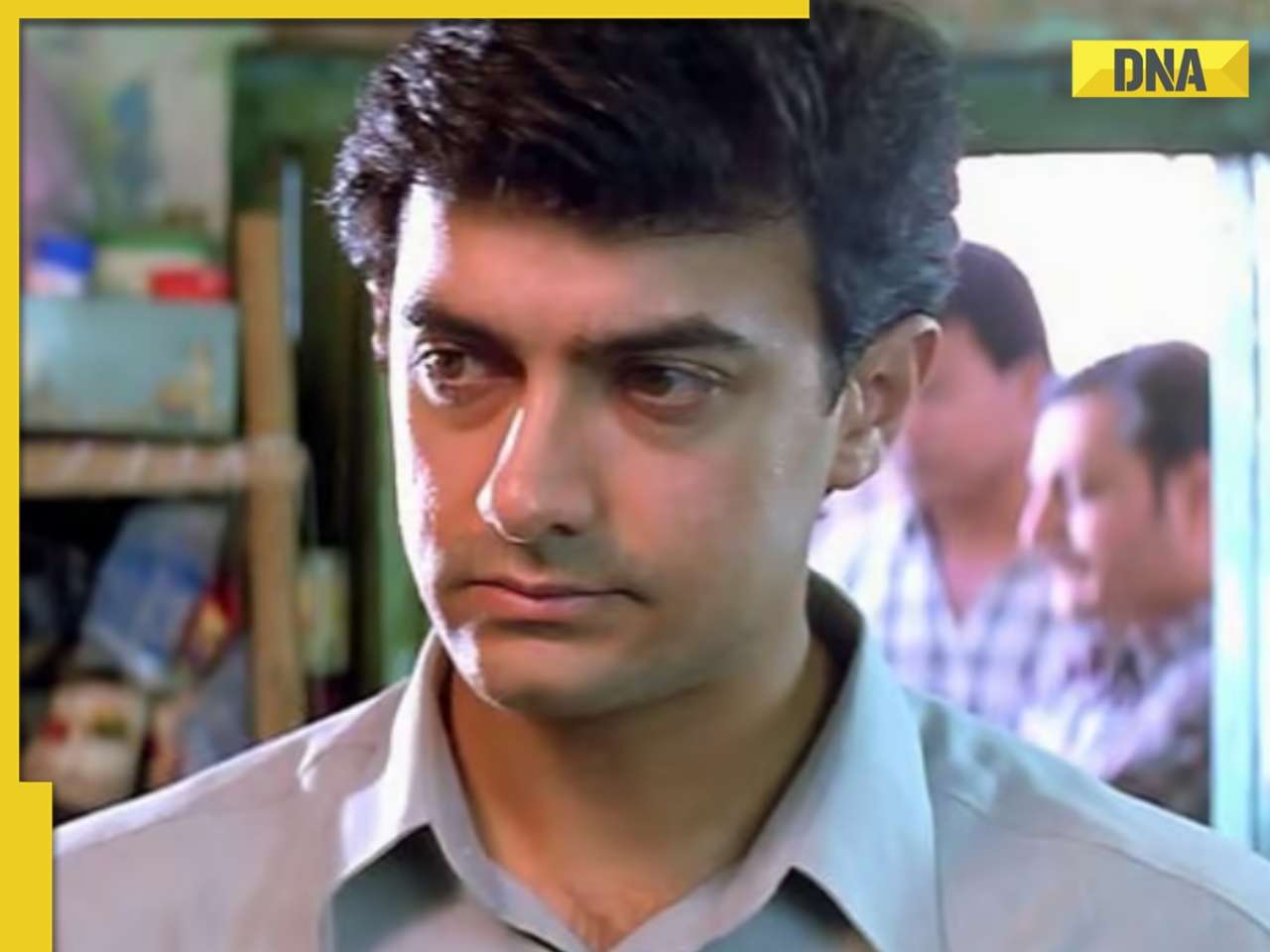
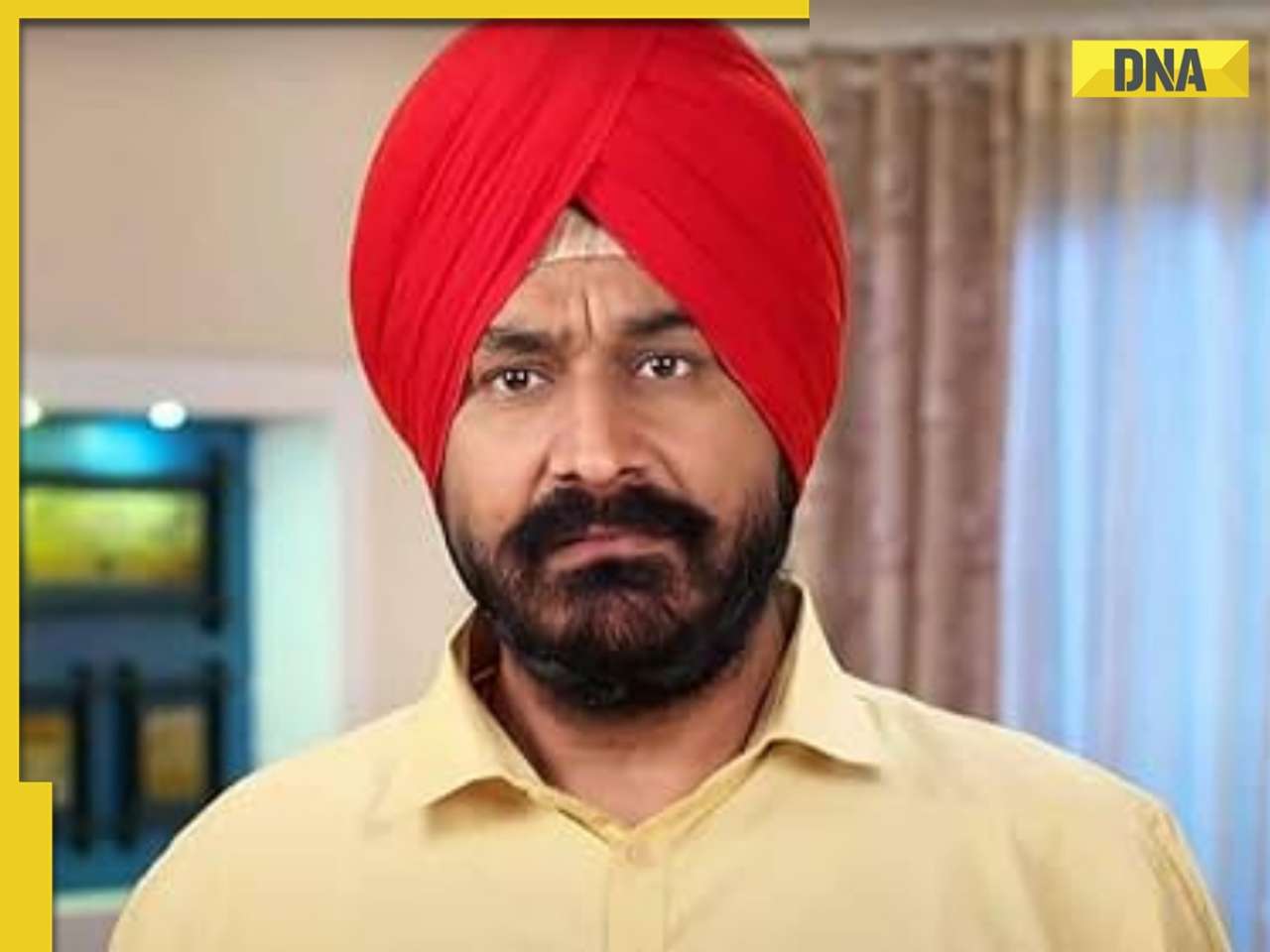























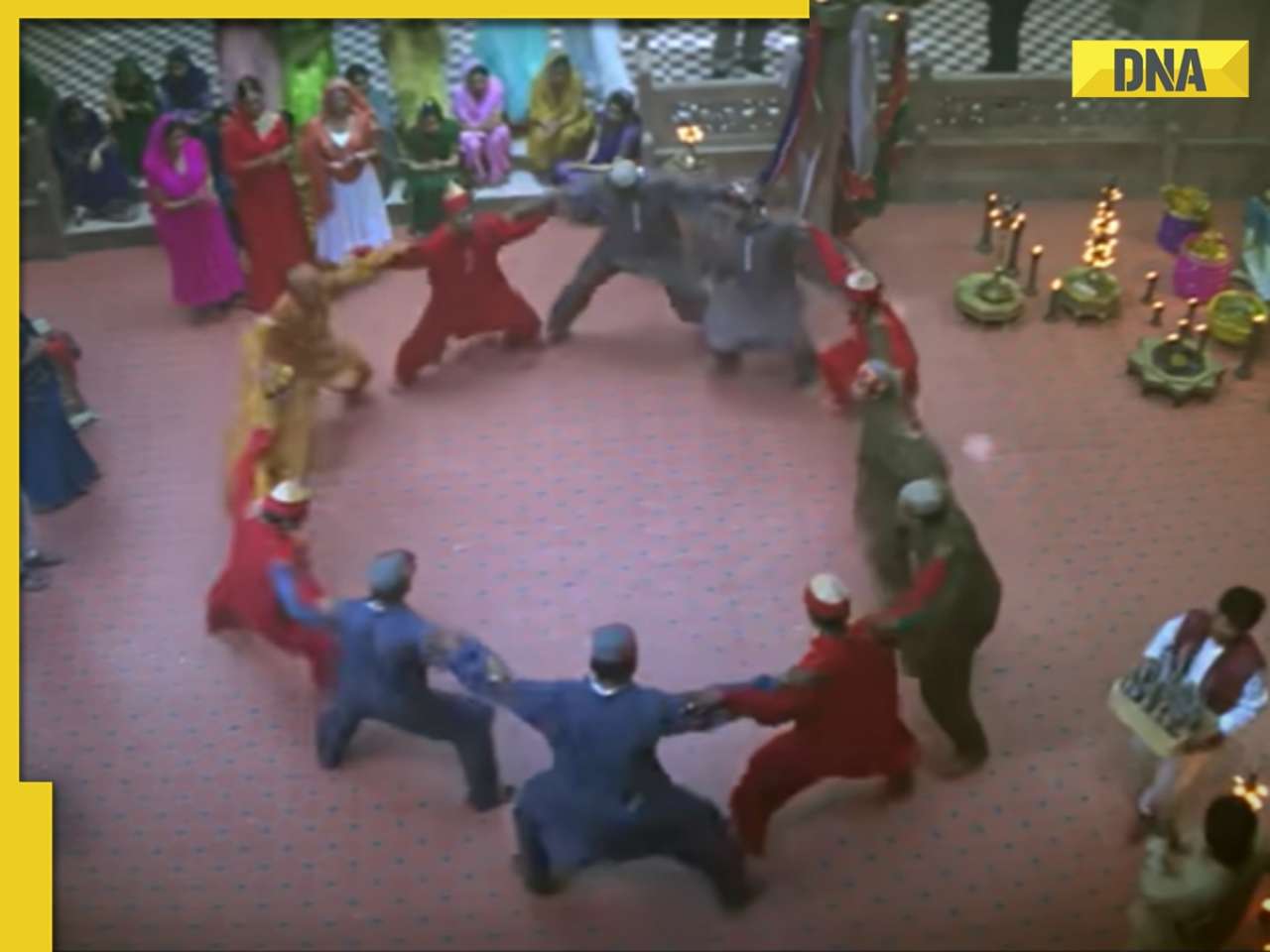

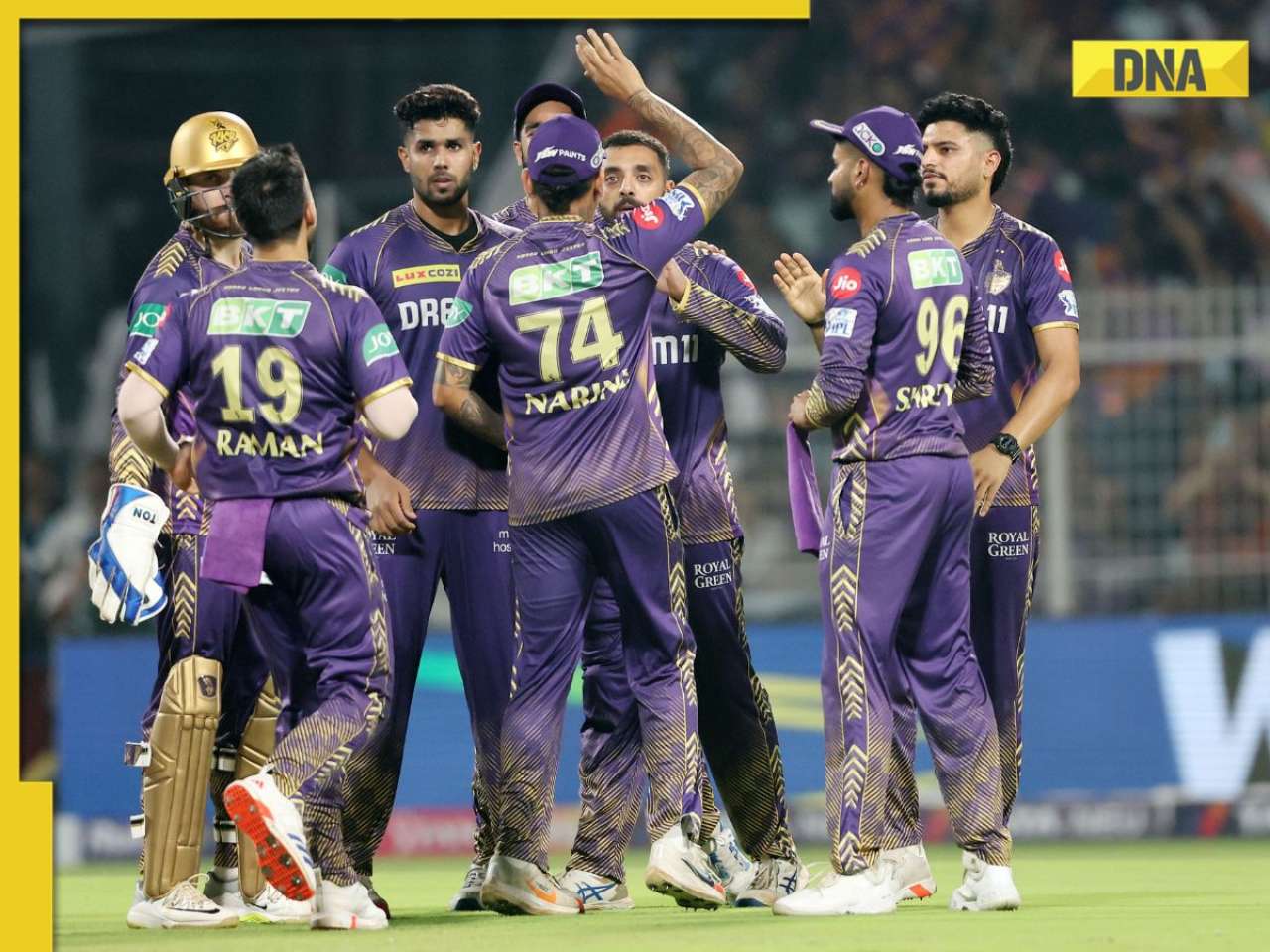
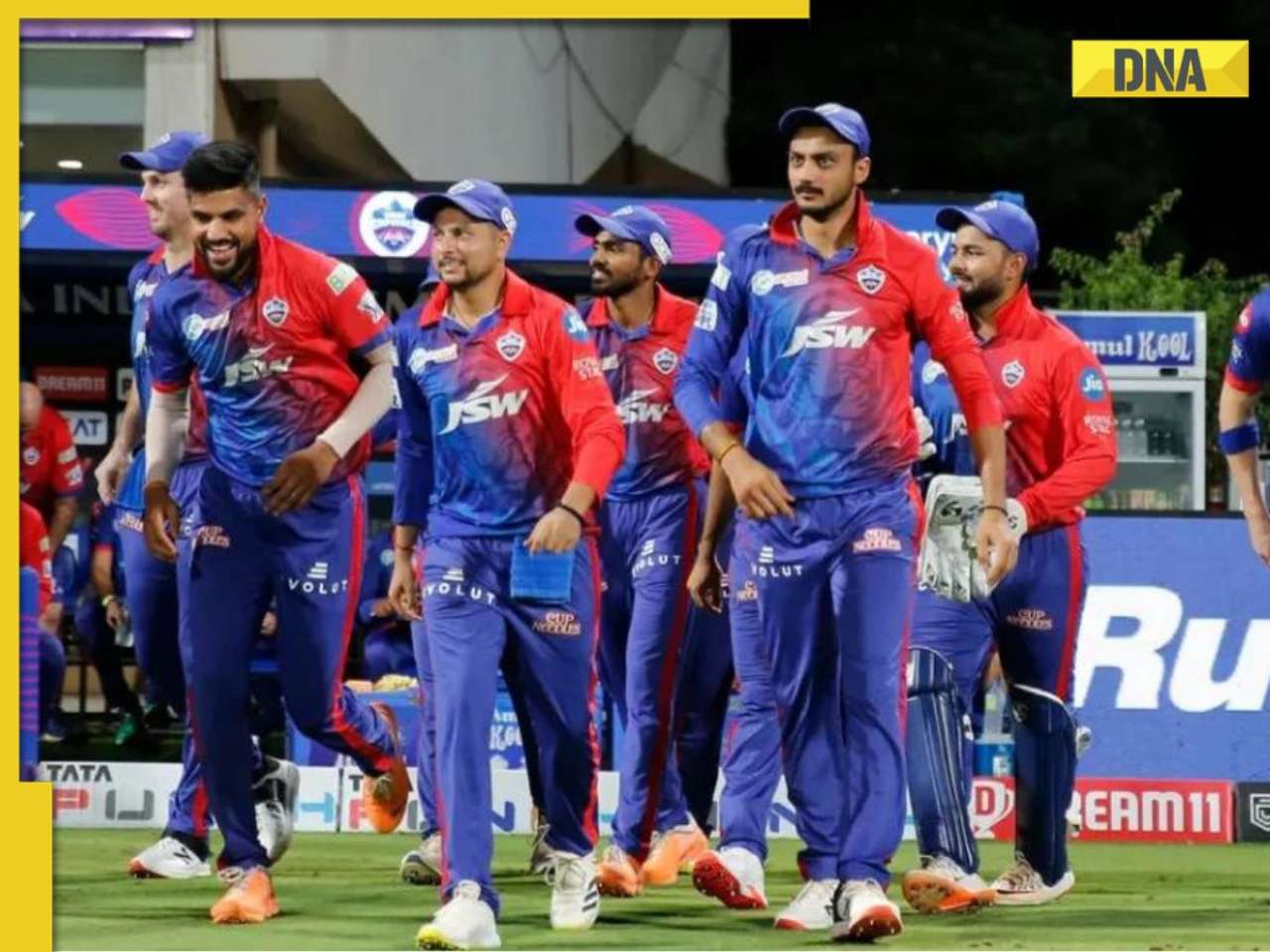
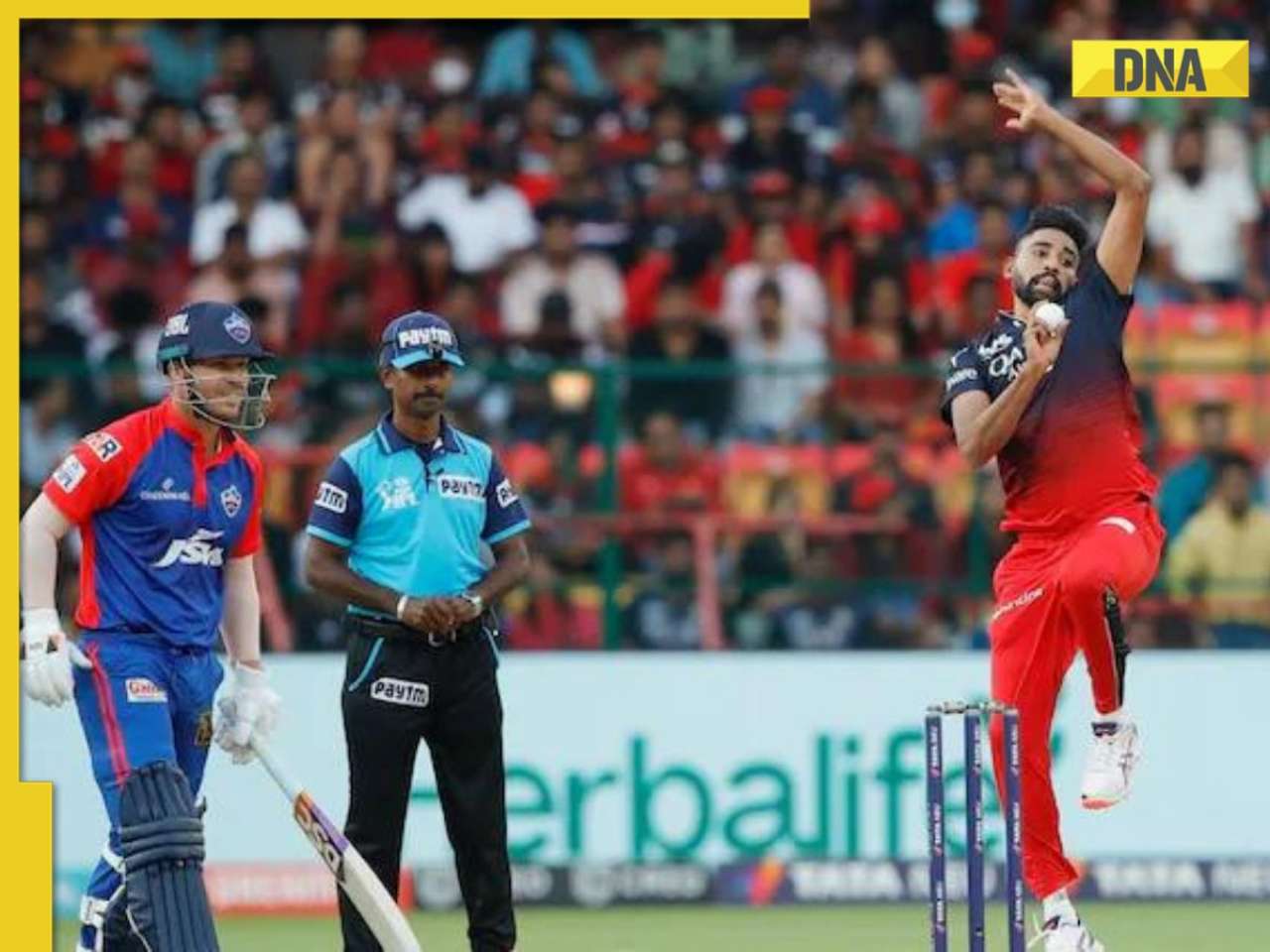
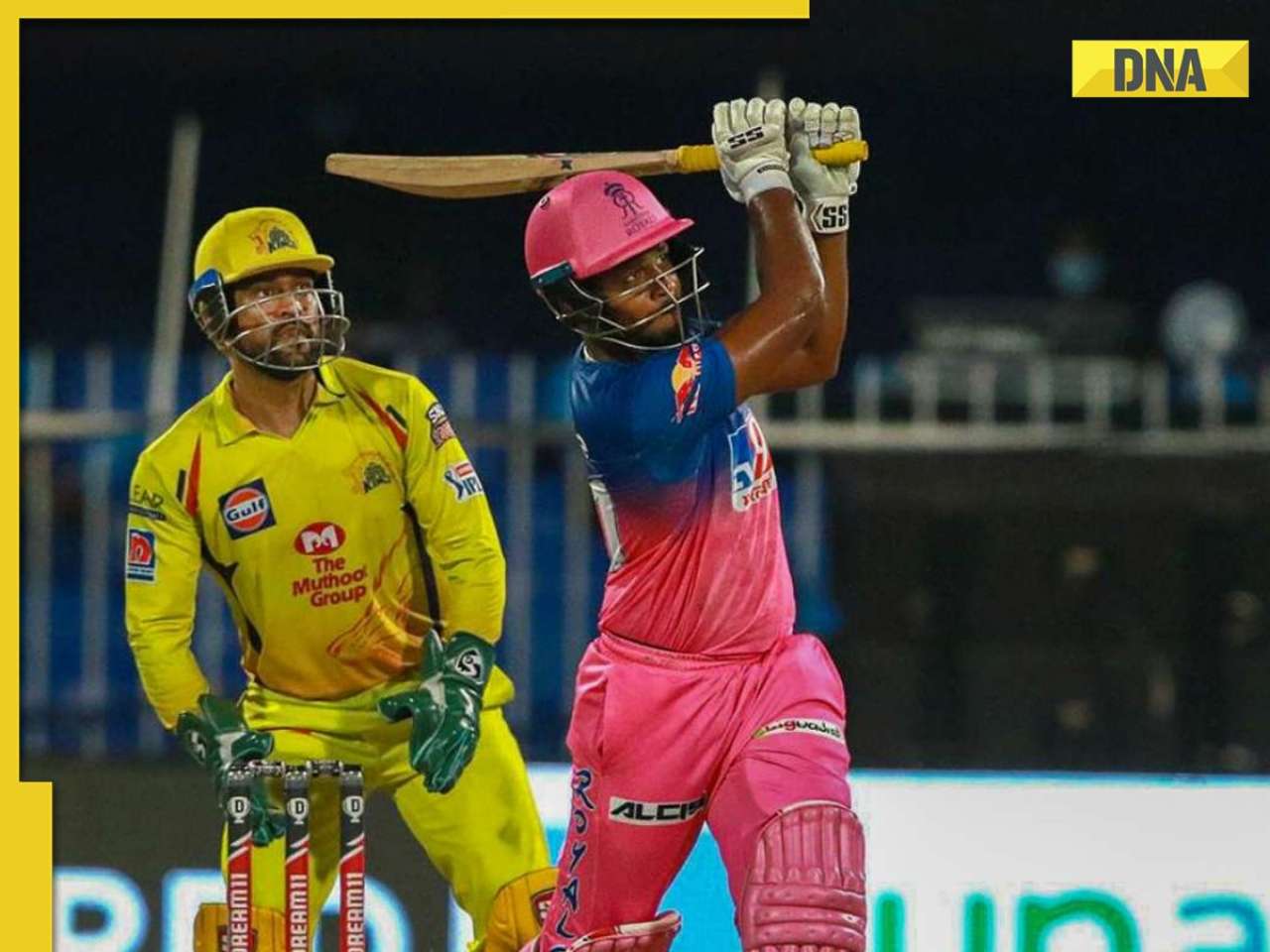
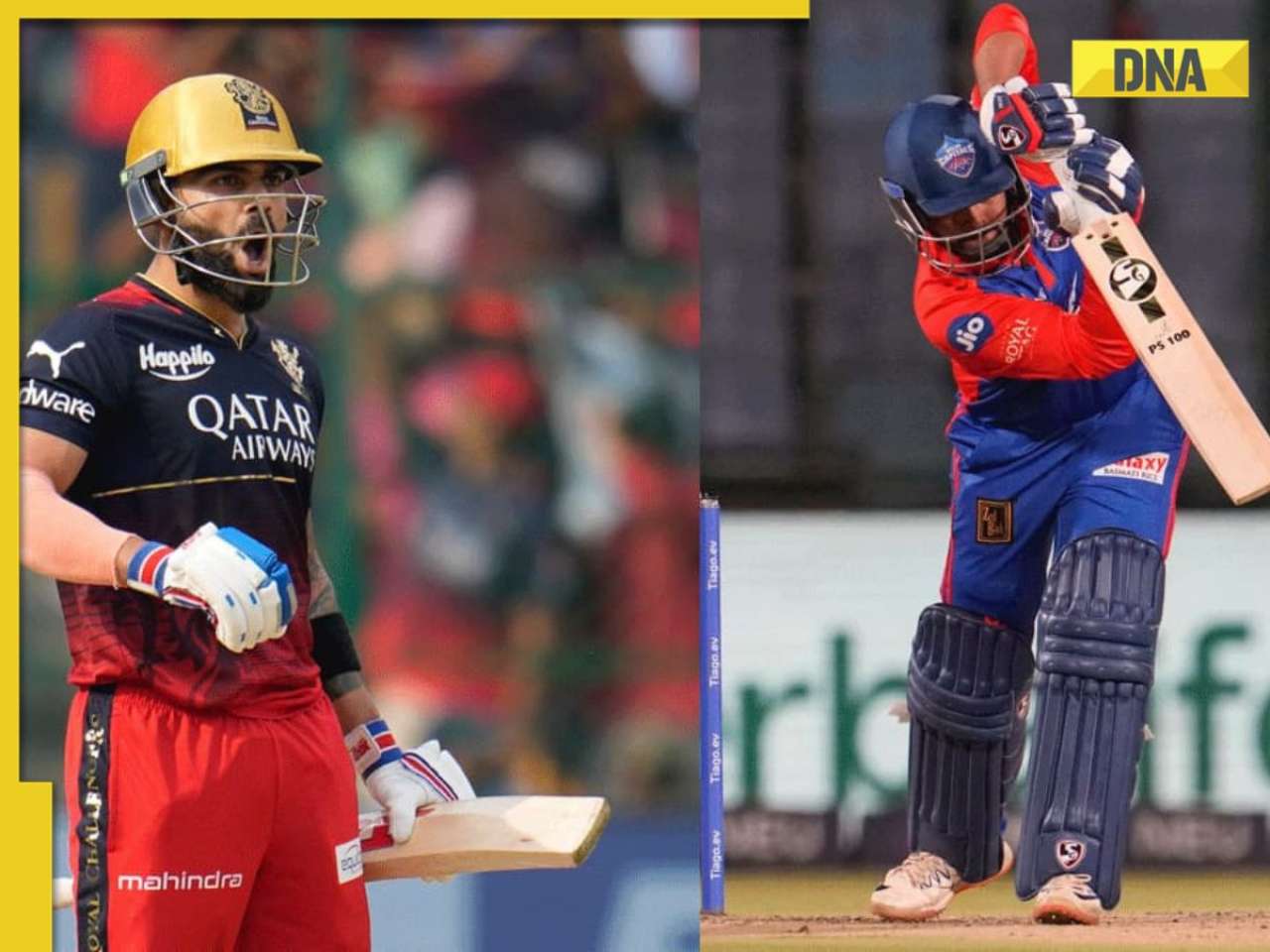


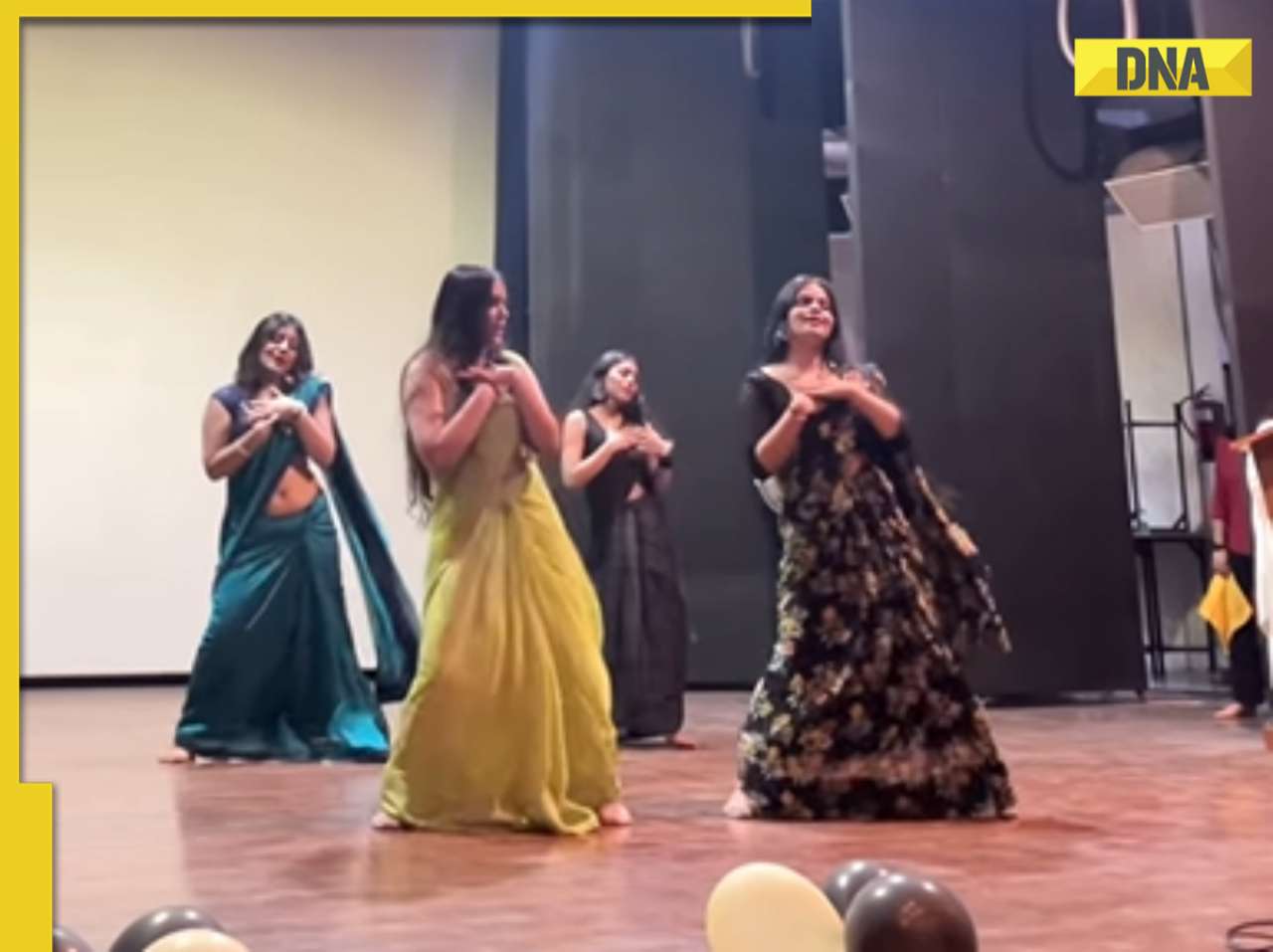



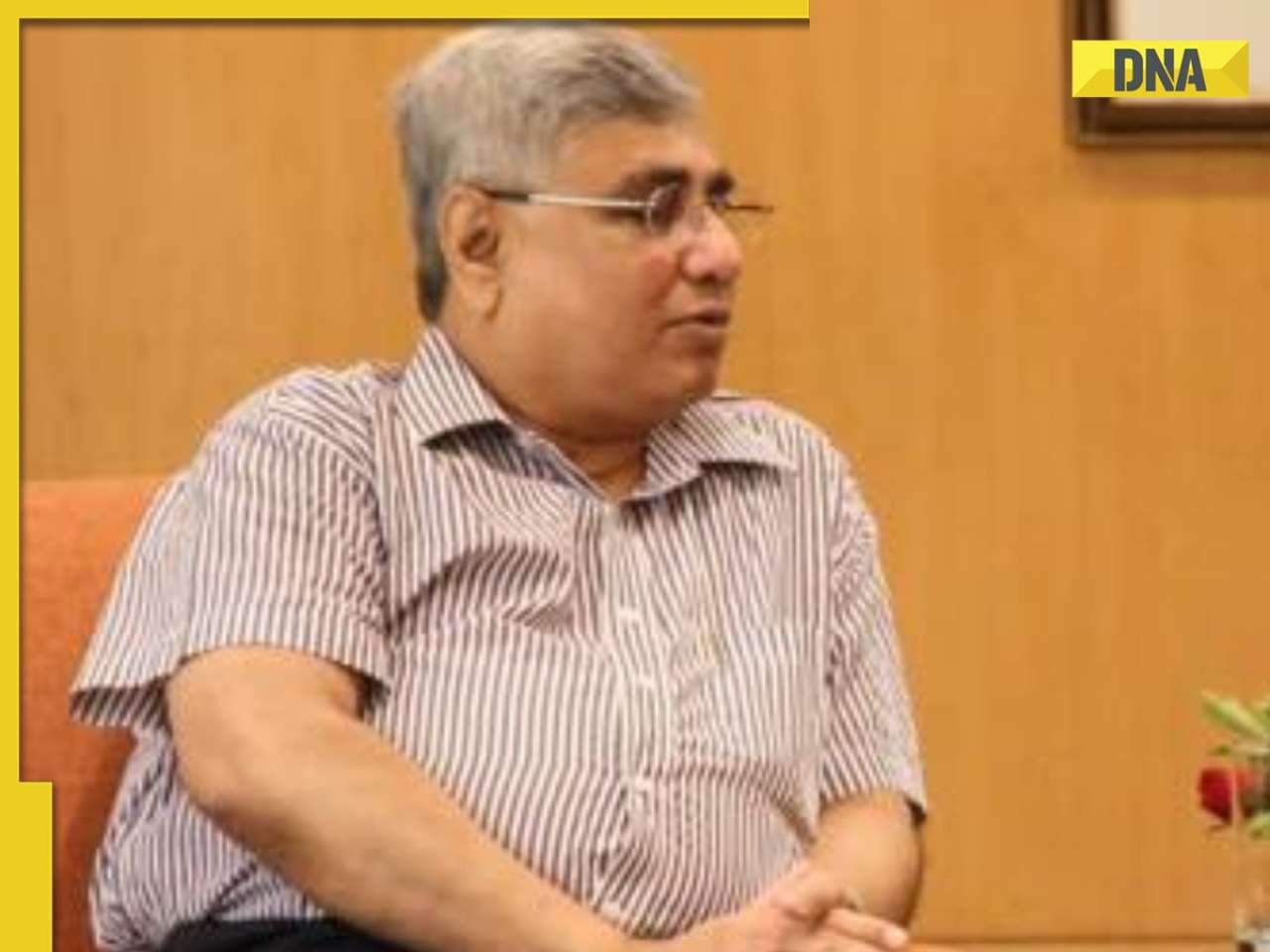





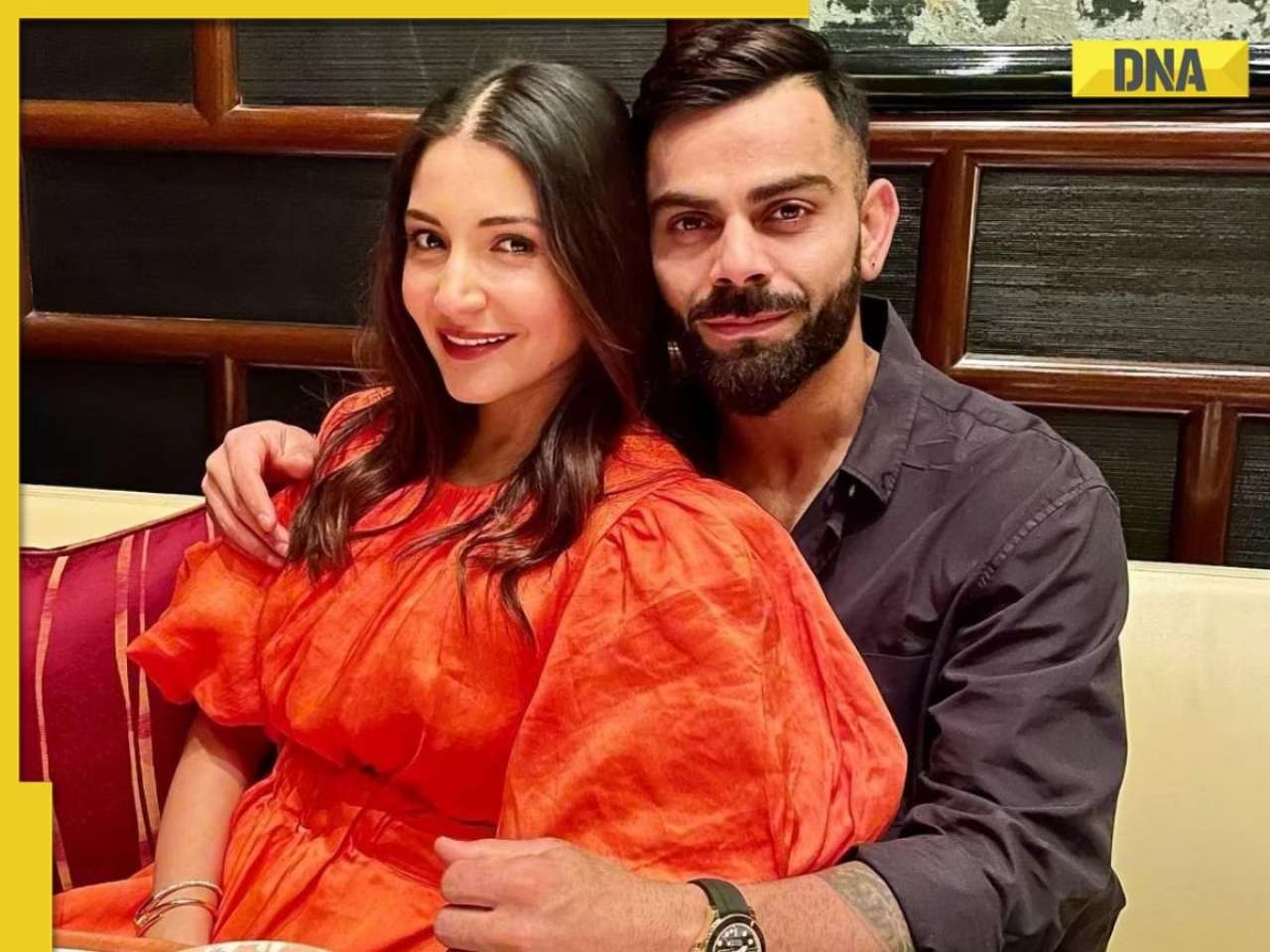










)
)
)
)
)
)